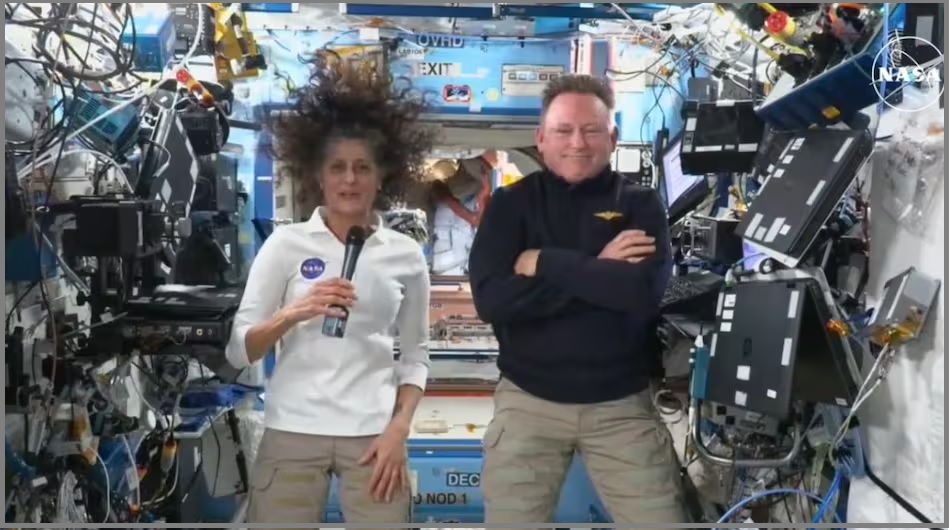
(Photo : NASA)
Astronauts Sunita Williams and Butch Wilmore plan to vote in the 2024 US elections from the International Space Station
- Astronauts Sunita Williams and Butch Wilmore plan to vote in the 2024 US elections from the International Space Station.
- Despite their extended stay in space due to technical glitches, they remain committed to their civic duty.
- NASA facilitates the voting process for astronauts on missions, emphasizing their commitment to democratic participation.
- This act continues the tradition of voting from space, first established by astronaut David Wolf in 1997.
In an unprecedented move, Indian-origin astronaut Sunita Williams and her NASA colleague Butch Wilmore, currently stationed on the International Space Station (ISS), have announced their intention to cast their votes in the 2024 US presidential elections from space.
The upcoming US elections, slated for November 5, 2024, will witness a face-off between Democrat Kamala Harris and Republican Donald Trump. Despite being in orbit, Williams and Wilmore are keen to exercise their democratic rights and participate in this crucial electoral process.
Extended Stay in Space
Williams and Wilmore, both seasoned astronauts, embarked on their journey aboard Boeing's Starliner on June 5, as part of the spacecraft's maiden crewed mission. Initially planned as an eight-day mission, their stay on the ISS has been extended to eight months due to technical glitches with the Starliner, which recently returned to Earth without them.
Despite the unexpected extension of their stay, the astronauts remain undeterred. Williams, in a video press conference, stated, That's how things go in this business. She further added that the transition to station life was not that hard since both astronauts had prior experience on the ISS.
Voting from Space: A Unique Civic Duty
Williams, reflecting on her extended mission, shared, This is my happy place. I love being up here in space. While she and Wilmore had hoped to complete the Starliner mission and return home, Williams remarked, We wanted to take Starliner to completion and land back on land at home, but you know, you have to turn the page and look at the next opportunity.
The astronauts have already sent down their requests for ballots, a process facilitated by NASA to enable astronauts to vote remotely while on missions. This arrangement underscores NASA's commitment to ensuring that its astronauts can fulfill their civic duties, even while in orbit.
Historical Precedence and Future Implications
Wilmore echoed Williams' sentiments, emphasizing their responsibility as American citizens, and noting that NASA makes it very easy for us to do that. The anticipation of casting their votes from space has added a unique dimension to their extended stay on the ISS. This isn't the first time that astronauts have voted from space. The first American to vote from space was David Wolf in 1997, while aboard the Russian Mir Space Station.
This was made possible by a 1997 Texas law that allowed voting electronically from space. Since then, several astronauts have exercised their right to vote from space, including Kate Rubins, who voted from the ISS in the 2020 US presidential elections.
As they continue their scientific endeavors on the ISS, Williams and Wilmore are also preparing to cast their votes in the 2024 presidential election from space. This unique act of civic participation underscores the importance of the democratic process and the lengths to which some will go to ensure their voices are heard, even from the farthest reaches of space.









